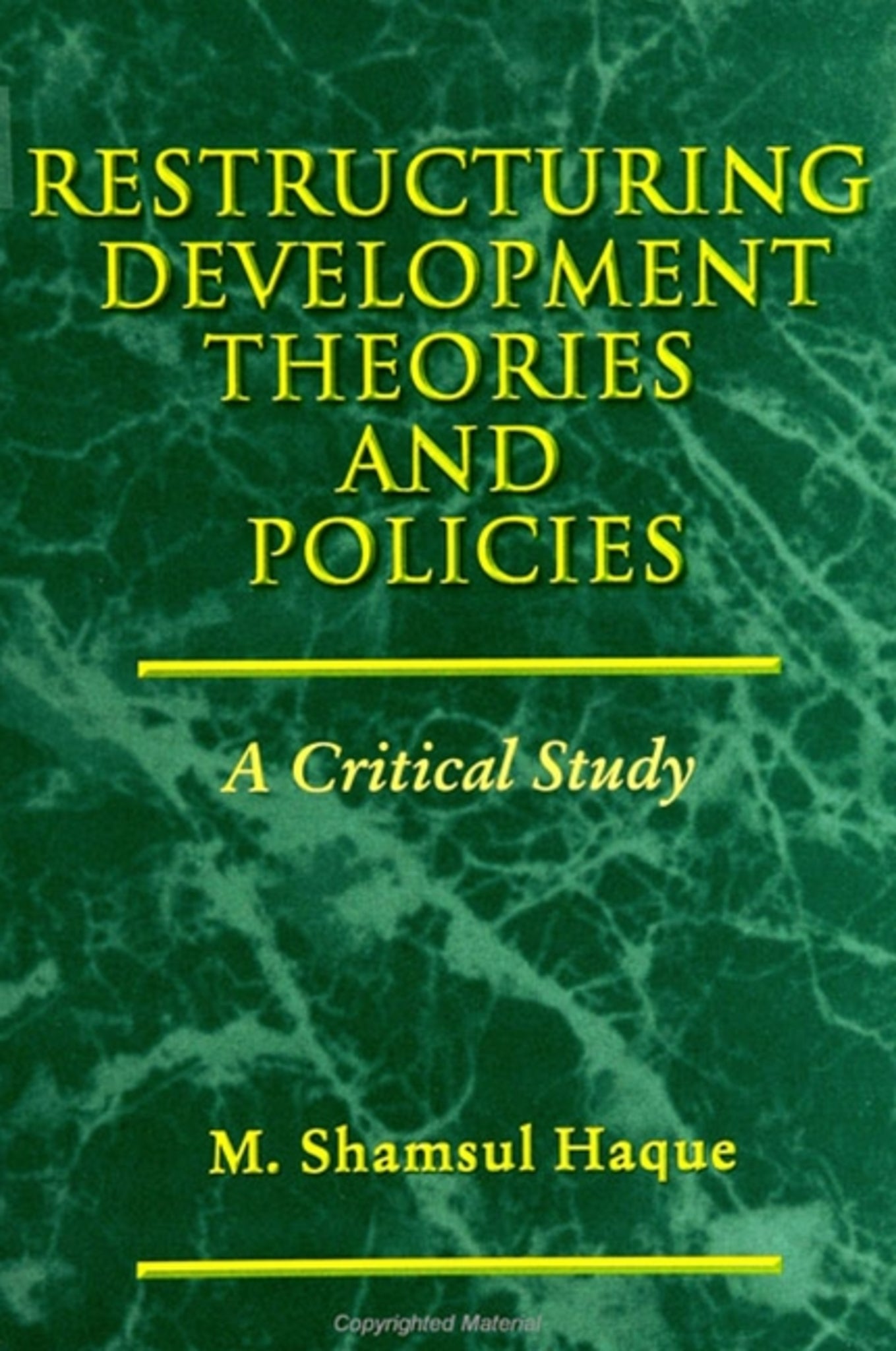We're sorry. An error has occurred
Please cancel or retry.
Restructuring Development Theories and Policies

Some error occured while loading the Quick View. Please close the Quick View and try reloading the page.
Couldn't load pickup availability
- Format:
-
09 September 1999

Explains and critiques current theories of political development.
In the contemporary global context replete with various forms of development crises, there is a growing demand for an alternative perspective. Haque explains the nature and forms of these current development crises, critiques the inadequacies of existing development theories to address such crises, restructures these theories into an alternative theoretical perspective, and suggests specific policy guidelines for attaining a genuine mode of development. He interprets development not as human conformity with any hegemonic development schemes, but as human autonomy from various forms and levels of subjugation. The book presents original arguments, covers up-to-date literature, adopts a multidisciplinary approach, mediates between theories and policies, and offers a comprehensive development alternative.


"A very useful volume for those interested in development studies." — CHOICE
"This is an exceptionally thorough, yet highly accessible, review of the development literature. It is almost encyclopedic in scope, and it connects several debates and perspectives in a very convincing and clear way. In the middle of an intellectual impasse in development studies, this is a powerful and original piece. While consensus on any given theory of development may be hard to reach, there is need for fresh new insights to stimulate a good intellectual debate in this field. This book certainly has the capacity to do that." — Mustafa Koc, Ryerson Polytechnic University
"Haque is justifiably mad at the failure of development efforts in the Third World, and he successfully links these failures to the development problems of growing disparity in the United States and Europe. The data support his claim that development efforts contributed to the problems rather than helped solve them. In being critical of development failures, he covers a wider array of data than some critiques, and the inclusion of cultural data makes a good contribution." — Ted K. Bradshaw, University of California, Davis
Preface
Chapter 1: An Introductory Overview
Chapter 2: Practical Crises of Development
Development Crises in Third World Countries
Crises in Capitalist and Socialist Countries
Development Crises at the Global Level
Chapter 3: A Taxonomic Prelude to Development Theories
Taxonomic Principles for Development Theories
Major Limitations of the Existing Classifications
Restructured Taxonomy of Development Theories
Chapter 4: Conservative Tradition of Development Theories
Theories of Economic Growth
Theories of Modernization
Chapter 5: Reformist Tradition of Development Theories
Conservative Reformist Theories
Radical Reformist Theories
Critical Reformist Theories
Chapter 6: Radical Tradition of Development Theories
Classical Marxist Theories
Radical Dependency Theories
Neo-Marxist Theories
Chapter 7: A Critique of Development Theories
Theoretical Shortcomings in the Development Field
Adverse Implications of Current Development Thinking
Newly Emerging Challenges to the Development Field
Chapter 8: Restructuring Concepts and Theories of Development
Redefining Development as a Concept
Restructuring Development Theories
Chapter 9: Reforming Development Policies
Reforming Policies to Achieve Natural-Physiological Autonomy
Reforming Policies to Realize Politico-Economic Autonomy
Reforming Policies to Enhance Cultural-Intellectual Autonomy
Summary and Conclusion
Notes
References
Name Index
Subject Index



